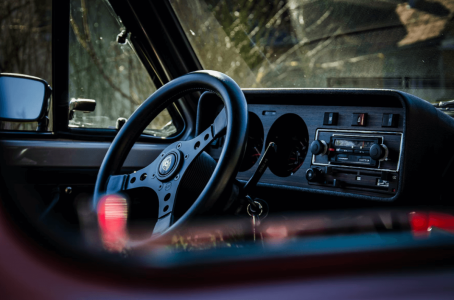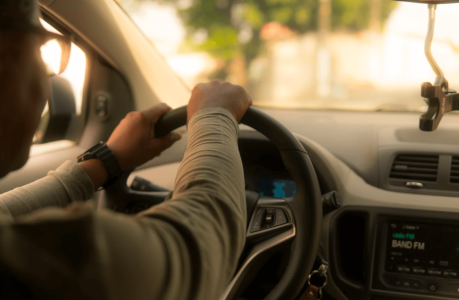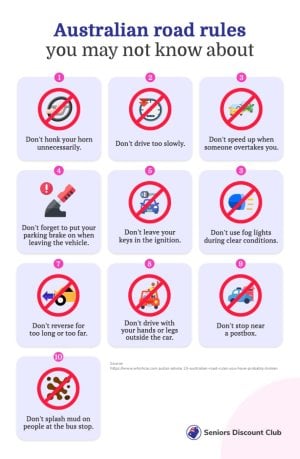Are you breaking the law? Here are some lesser-known Australian road rules to keep in mind
- Replies 11
While driving is an all-too-familiar experience for most of us, it's easy to fall into complacency and assume we know all the rules of the road.
While the basics are well known, like following speed limits and wearing a seatbelt, did you know there are obscure laws you may not be aware of?
These laws vary by state and territory, but they are all governed by the Road Traffic Act of 1961. Whether you're driving in a busy city or a rural area, it's important to stay informed and up-to-date on these regulations to avoid breaking the law and receiving a hefty fine.
To help you steer clear of any legal trouble on the road, we've rounded up some lesser-known road rules. Read on to make sure you're in the know and driving safely.
Don't honk the horn unnecessarily.
You may honk your horn to say hello or goodbye to friends, but did you know that this common habit could land you in legal trouble? According to Australian Road Rules (ARR) Regulation 224, honking your horn unnecessarily is against the law.
That's right, the next time you feel like giving a friendly beep, think twice! According to the ARR, you are only allowed to use your horn if it is necessary to warn other road users or animals of your approach or position, or if it's being used as part of an anti-theft device or alcohol interlock device in the vehicle.
So keep in mind, folks - be mindful of the horn. Who knew a simple beep could result in a hefty fine? Play it safe and only honk when it's truly necessary.
Don't drive too slowly.
Do you get frustrated with slow drivers on the road? Well, they might actually be breaking the law by obstructing your path. If you're cruising along a road at a speed of 20km/h to 80km/h, a driver going abnormally slow could be fined for unreasonably blocking your way.
The law states that if you're driving on a road with a speed limit of 80km/h and there's no reason for you to be going 20km/h, you could be considered as driving abnormally slow and obstructing other drivers or pedestrians.

Don't speed up when someone overtakes you.
It can be frustrating to experience a driver speeding up just as you were about to overtake them on a two-way road. But did you know that this manoeuvre is not only dangerous but also against the law?
According to Regulation 145 of the Australian Road Rules, drivers are prohibited from accelerating while another vehicle is passing them. The driver being overtaken must not increase their speed until the overtaking vehicle has safely returned to their lane and is a sufficient distance in front.
So, next time you're on the road and tempted to speed up when being overtaken, remember that it's illegal and can put yourself and other drivers at risk. Always prioritise safety and follow the rules of the road.
Make sure you put your parking brake on.
Winter is still far off, but it's never too early to be prepared! Did you know that under Regulation 213 of the Road Traffic Act, it's your responsibility to secure your vehicle before leaving it, even if it's just for a quick errand?
The regulation requires drivers to apply the parking brake effectively, or if weather conditions like snow prevent it from functioning properly, to restrain the vehicle's movement in another way. This is all part of the 'Making a Motor Vehicle Secure' subheading in the Act.
So, to be sure you're keeping yourself and others safe, always apply the handbrake when parked. Don't get caught off guard and be prepared for anything Mother Nature might throw your way!

Don't leave your keys in the ignition.
Do you ever leave your car running while you dash into a store or leave the keys in the ignition when running errands? Not only is it a major safety hazard, but you could also be breaking the law!
According to Regulation 213 of the Australian Road Rules, the driver must remove the ignition key and secure the windows and lock the doors of the vehicle when leaving it unattended. This is to ensure the safety of the vehicle and protect it from theft.
And that's not all! If your car is stolen with the keys in the ignition, your insurance company might not cover the costs. So not only are you putting your vehicle at risk, but you're also jeopardising your financial security.
Don't use fog lights during clear conditions.
Regulation 217 of the Australian Road Rules has a simple yet important rule: only use your fog lights in hazardous weather conditions causing reduced visibility. No more using those front or rear fog lights as a styling statement or mistaking them for extra headlights!
It's crucial to understand the difference between the two - front fog lights improve visibility while rear fog lights make your car more visible to others.

Don't reverse for too long or too far.
Did you know that backing up too far could land you in hot water with the law? According to Regulation 296 of the Australian Road Rules, it's illegal to reverse a vehicle further than necessary. It's a little-known law, but it's one that could save you from a dangerous collision and a hefty fine.
The next time you find yourself in a tight spot, think twice before reaching for the reverse gear. It may be safer and easier to turn around or drive around the block.
Don't drive with limbs outside the car.
With the summer sun shining, the last thing you want is to be stuck inside a car on a hot day. But, before you let your arm dangle out of the window for a refreshing breeze, be aware of the dangers outlined in Regulation 268 of the Australian Road Rules.
It's not just sunburn you have to worry about; you could also be breaking the law by having 'any part of the person's body outside a window or door of the vehicle’.
However, if your indicator isn’t working, you can use your arm to indicate left and right turns, or a stopping and slowing signal. Though you might equally receive a fine for the faulty indicator…
Don't stop near a postbox.
Think about it, every time you stop too close to a postbox, you might just be delaying your neighbour's bill payment, preventing a heartfelt letter from reaching its destination, or delaying an important delivery from reaching its recipient.
Be aware of Road Rule 199. This regulation ensures that drivers don't impede the delivery of mail by stopping within three metres of a public postbox. It's not just about avoiding a fine, it's about keeping the mail delivery system running smoothly for all of us!

Don't splash mud on people at the bus stop.
This final rule is only applicable to New South Wales road users, but it's still a good one to keep in mind!
According to Rule 293.1, 'a driver must take due care, by slowing down or stopping the vehicle if necessary, not to splash mud on any person in or on a bus, or any person entering or leaving any stationary bus, or any person waiting at any bus stop’.
But what if you're waiting for a taxi or tram in the rain? Or, what if you decide to skip the bus and take a stroll down the footpath and happen to be on the receiving end of a splash from an unfriendly road user? Sadly, there is nothing that the law will do to punish that driver.
But this doesn't mean that you're completely out of luck! There are still things you can do to fight back against mud-slinging drivers.
Whether it's taking down their licence plate number and reporting them to the authorities, or even snapping a picture and sharing it on social media, there are ways to bring attention to the issue and call for change.
And who knows, maybe with enough public pressure, the law will eventually be updated to provide even greater protections for all those who are simply trying to make their way from Point A to Point B.
Members, we hope you found this article to be an eye-opening read! With the rules of the road constantly changing, it's essential to stay updated and aware of what we can and cannot do on the road. Not only does following these lesser-known rules keep us and others safe, but it can also prevent you from receiving unexpected fines and penalties.
Have any other road rules to share with the community? Leave a comment and let's start a conversation!
While the basics are well known, like following speed limits and wearing a seatbelt, did you know there are obscure laws you may not be aware of?
These laws vary by state and territory, but they are all governed by the Road Traffic Act of 1961. Whether you're driving in a busy city or a rural area, it's important to stay informed and up-to-date on these regulations to avoid breaking the law and receiving a hefty fine.
To help you steer clear of any legal trouble on the road, we've rounded up some lesser-known road rules. Read on to make sure you're in the know and driving safely.
Don't honk the horn unnecessarily.
You may honk your horn to say hello or goodbye to friends, but did you know that this common habit could land you in legal trouble? According to Australian Road Rules (ARR) Regulation 224, honking your horn unnecessarily is against the law.
That's right, the next time you feel like giving a friendly beep, think twice! According to the ARR, you are only allowed to use your horn if it is necessary to warn other road users or animals of your approach or position, or if it's being used as part of an anti-theft device or alcohol interlock device in the vehicle.
So keep in mind, folks - be mindful of the horn. Who knew a simple beep could result in a hefty fine? Play it safe and only honk when it's truly necessary.
Don't drive too slowly.
Do you get frustrated with slow drivers on the road? Well, they might actually be breaking the law by obstructing your path. If you're cruising along a road at a speed of 20km/h to 80km/h, a driver going abnormally slow could be fined for unreasonably blocking your way.
The law states that if you're driving on a road with a speed limit of 80km/h and there's no reason for you to be going 20km/h, you could be considered as driving abnormally slow and obstructing other drivers or pedestrians.

It's illegal and dangerous to speed up to get back in front of a car that has passed you. Credit: Unsplash/Geometric Photography.
Don't speed up when someone overtakes you.
It can be frustrating to experience a driver speeding up just as you were about to overtake them on a two-way road. But did you know that this manoeuvre is not only dangerous but also against the law?
According to Regulation 145 of the Australian Road Rules, drivers are prohibited from accelerating while another vehicle is passing them. The driver being overtaken must not increase their speed until the overtaking vehicle has safely returned to their lane and is a sufficient distance in front.
So, next time you're on the road and tempted to speed up when being overtaken, remember that it's illegal and can put yourself and other drivers at risk. Always prioritise safety and follow the rules of the road.
Make sure you put your parking brake on.
Winter is still far off, but it's never too early to be prepared! Did you know that under Regulation 213 of the Road Traffic Act, it's your responsibility to secure your vehicle before leaving it, even if it's just for a quick errand?
The regulation requires drivers to apply the parking brake effectively, or if weather conditions like snow prevent it from functioning properly, to restrain the vehicle's movement in another way. This is all part of the 'Making a Motor Vehicle Secure' subheading in the Act.
So, to be sure you're keeping yourself and others safe, always apply the handbrake when parked. Don't get caught off guard and be prepared for anything Mother Nature might throw your way!

It's against the law to leave your keys in the ignition, and doing so may make your insurance invalid. Credit: Unsplash/Frank Albrecht.
Don't leave your keys in the ignition.
Do you ever leave your car running while you dash into a store or leave the keys in the ignition when running errands? Not only is it a major safety hazard, but you could also be breaking the law!
According to Regulation 213 of the Australian Road Rules, the driver must remove the ignition key and secure the windows and lock the doors of the vehicle when leaving it unattended. This is to ensure the safety of the vehicle and protect it from theft.
And that's not all! If your car is stolen with the keys in the ignition, your insurance company might not cover the costs. So not only are you putting your vehicle at risk, but you're also jeopardising your financial security.
Don't use fog lights during clear conditions.
Regulation 217 of the Australian Road Rules has a simple yet important rule: only use your fog lights in hazardous weather conditions causing reduced visibility. No more using those front or rear fog lights as a styling statement or mistaking them for extra headlights!
It's crucial to understand the difference between the two - front fog lights improve visibility while rear fog lights make your car more visible to others.

It's against the law to drive with any part of your body hanging out of a car window or door. Credit: Unsplash/anja.
Don't reverse for too long or too far.
Did you know that backing up too far could land you in hot water with the law? According to Regulation 296 of the Australian Road Rules, it's illegal to reverse a vehicle further than necessary. It's a little-known law, but it's one that could save you from a dangerous collision and a hefty fine.
The next time you find yourself in a tight spot, think twice before reaching for the reverse gear. It may be safer and easier to turn around or drive around the block.
Don't drive with limbs outside the car.
With the summer sun shining, the last thing you want is to be stuck inside a car on a hot day. But, before you let your arm dangle out of the window for a refreshing breeze, be aware of the dangers outlined in Regulation 268 of the Australian Road Rules.
It's not just sunburn you have to worry about; you could also be breaking the law by having 'any part of the person's body outside a window or door of the vehicle’.
However, if your indicator isn’t working, you can use your arm to indicate left and right turns, or a stopping and slowing signal. Though you might equally receive a fine for the faulty indicator…
Don't stop near a postbox.
Think about it, every time you stop too close to a postbox, you might just be delaying your neighbour's bill payment, preventing a heartfelt letter from reaching its destination, or delaying an important delivery from reaching its recipient.
Be aware of Road Rule 199. This regulation ensures that drivers don't impede the delivery of mail by stopping within three metres of a public postbox. It's not just about avoiding a fine, it's about keeping the mail delivery system running smoothly for all of us!

Splashing mud on anyone in or on a bus, anyone entering or leaving a halted bus, or anyone waiting at a bus stop is punishable in New South Wales. Credit: Pexels/Jean-Daniel Francoeur.
Don't splash mud on people at the bus stop.
This final rule is only applicable to New South Wales road users, but it's still a good one to keep in mind!
According to Rule 293.1, 'a driver must take due care, by slowing down or stopping the vehicle if necessary, not to splash mud on any person in or on a bus, or any person entering or leaving any stationary bus, or any person waiting at any bus stop’.
But what if you're waiting for a taxi or tram in the rain? Or, what if you decide to skip the bus and take a stroll down the footpath and happen to be on the receiving end of a splash from an unfriendly road user? Sadly, there is nothing that the law will do to punish that driver.
But this doesn't mean that you're completely out of luck! There are still things you can do to fight back against mud-slinging drivers.
Whether it's taking down their licence plate number and reporting them to the authorities, or even snapping a picture and sharing it on social media, there are ways to bring attention to the issue and call for change.
And who knows, maybe with enough public pressure, the law will eventually be updated to provide even greater protections for all those who are simply trying to make their way from Point A to Point B.
Members, we hope you found this article to be an eye-opening read! With the rules of the road constantly changing, it's essential to stay updated and aware of what we can and cannot do on the road. Not only does following these lesser-known rules keep us and others safe, but it can also prevent you from receiving unexpected fines and penalties.
Have any other road rules to share with the community? Leave a comment and let's start a conversation!









